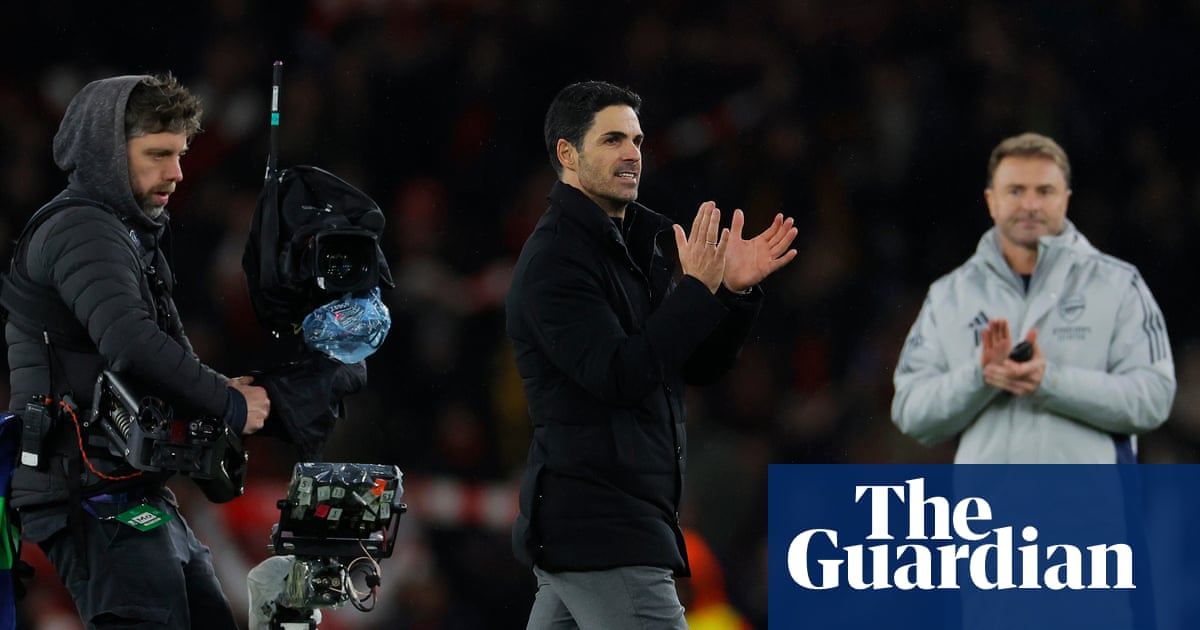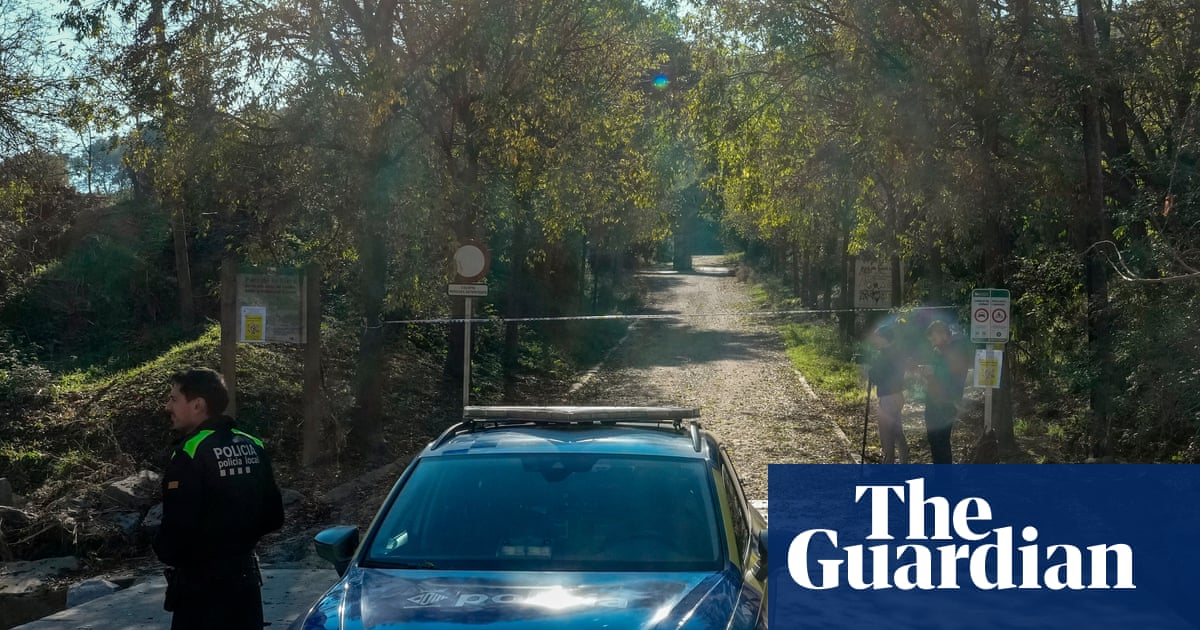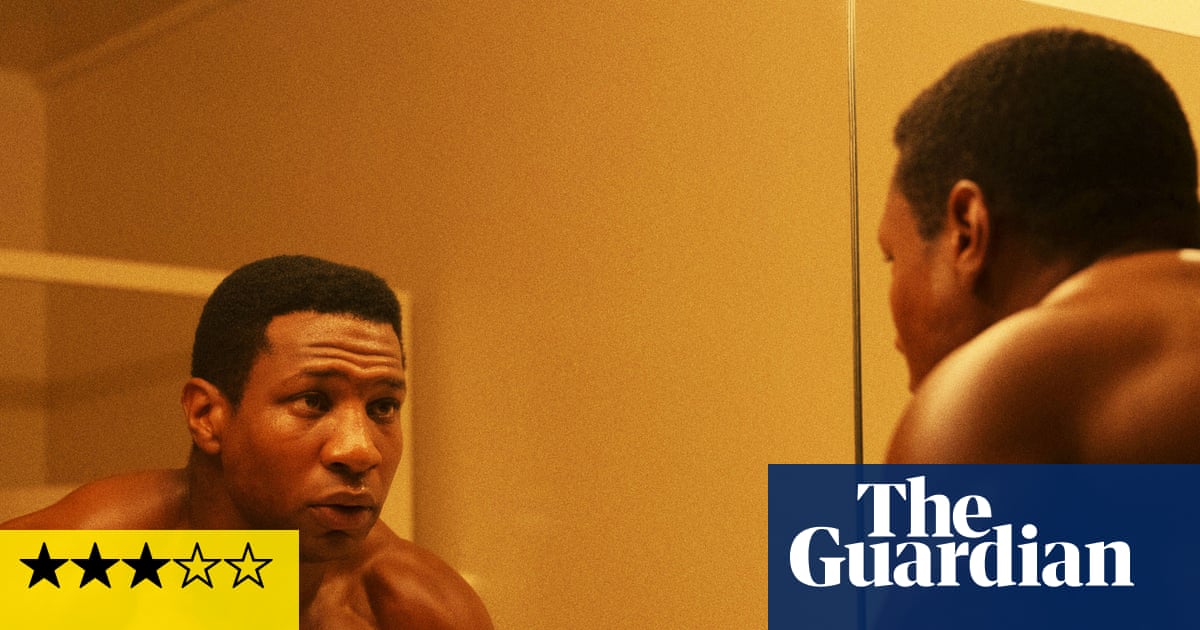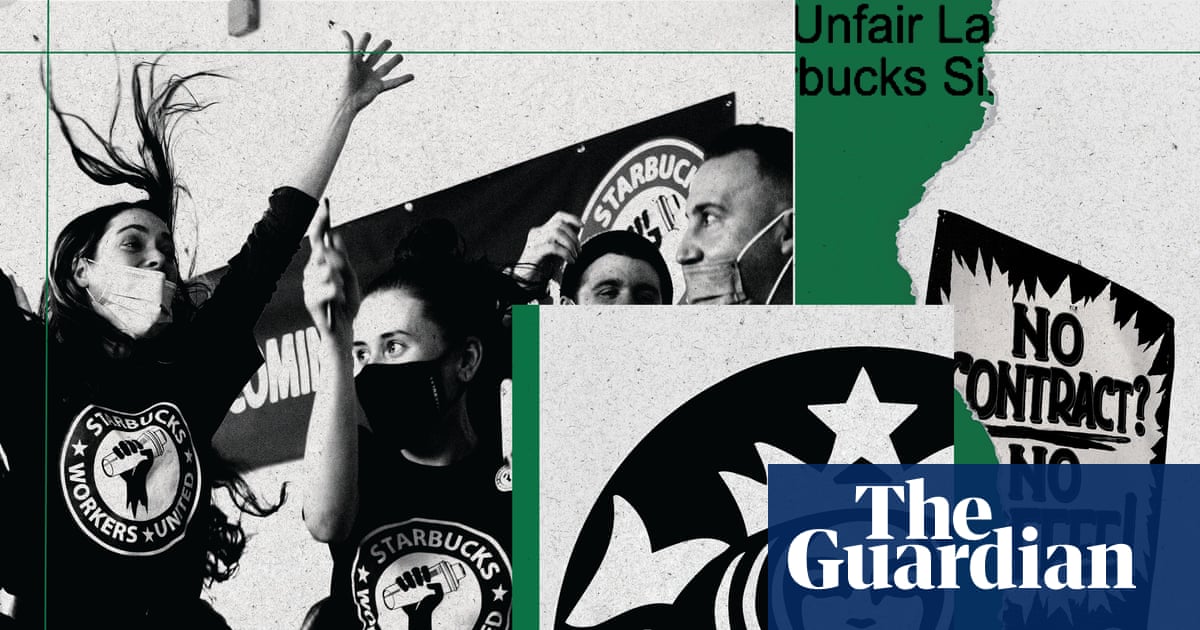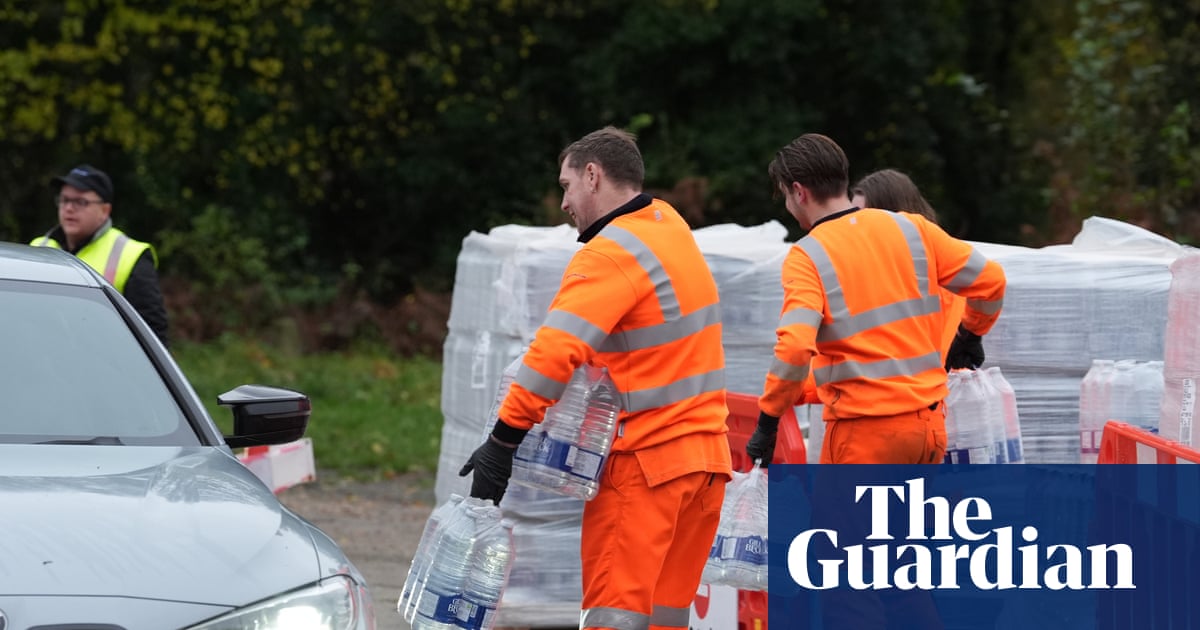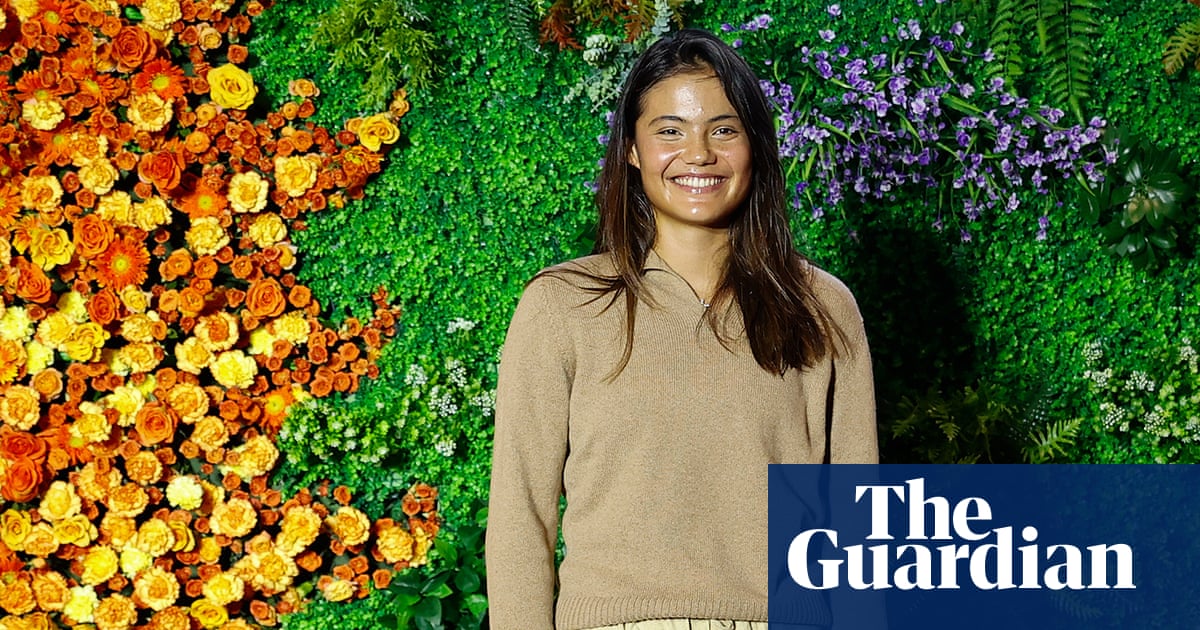Born in the US, raised in apartheid-era South Africa, a reluctant star in her 20s following her big break in Schindler’s List, and now a first-time director at the age of 60, Embeth Davidtz knows what it means to be an outsider. “I’ve always had the feeling,” she says, “that I don’t quite belong.”
Normally found in Los Angeles – where she lives in a house once owned by Julie Andrews, with her husband, the entertainment lawyer Jason Sloane – Davidtz is today in Cape Town for work and family commitments. Speaking by video call from a cream-and-beige bedroom, wearing a white top and glasses with peach-coloured frames, her brunette hair tied back, she looks the picture of serenity. The effect is completed by her voice, which soothed millions of children when she starred as the perfect teacher, Miss Honey, in the 1996 film of Roald Dahl’s Matilda.
Even Miss Trunchbull, though, would be intimidated by the bitter, sozzled, shotgun-toting character Davidtz plays in her directorial debut. She adapted Don’t Let’s Go to the Dogs Tonight from Alexandra Fuller’s 2001 memoir about her childhood in Zimbabwe, then called Rhodesia. Narrowing the action of the book down to a few months in 1980, when the country was approaching the elections that would see it regain its independence, Davidtz’s film filters events through the eyes and ears of Bobo, played by Lexi Venter, an eight-year-old white girl living on a farm with her older sister and their fearful, racist parents. It is through Bobo’s credulous voiceover that we learn how “any African might be a terrorist”; through watching her at play with Black children, whom she refers to as “my boys”, that we appreciate how deeply she has been contaminated.
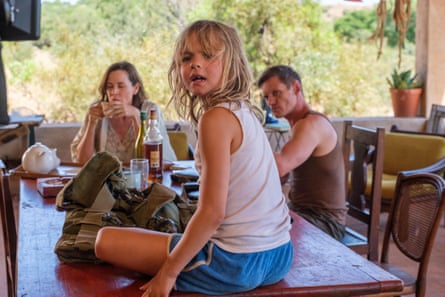
Davidtz awarded herself the part of the girl’s volatile mother, who is given to stumbling around in her negligee shooting at snakes, or getting on her high horse, literally, to try to drive Black locals off “her” land. The role was meant to be bigger. “I adapted the book partly because I wanted to play the mother,” she says, “and to have a chance to chew up the scenery.” But once she realised Bobo’s perspective would be the most revealing, she pared back her own screen time. Wise move: it would be foolhardy indeed to compete with this feral newcomer, who zooms around on a tiny motorcycle in leather boots and tumbleweed hair with a rifle strapped to her back like a mini-Mad Max.
Directing her was adventure enough. “Lexi is curious and funny and free,” says Davidtz. “But if I ever asked her to ‘act’ or to learn dialogue, then it was bad and we couldn’t use it. I had to grab things, call lines out to her, improvise stuff. I flew by the seat of my pants. It’s like taking a lion cub in the wild and observing its behaviour, throwing something in there that might distract it or elicit a reaction.”
Making the movie was never solely about Davidtz grabbing a plum part for herself. There was also the attraction of autobiography-by-proxy. “I’d been trying to write about my upbringing,” she says. “Then when I read Alexandra’s memoir, I realised I could never match the way she captured herself as a vivid, ill-informed child. It was also more dramatic than my life, but there were enough little arteries running between them that I felt deeply connected to it. I remember saying to Alexandra, ‘I think I know how to tell this story.’”
Like Bobo, young Davidtz had to scramble to make sense of the madness and cruelty around her. Her parents, who are both South African, had been studying in the US when she was born, then moved back to Johannesburg when she was eight so that her father could take a job as a chemical engineer. How did they prepare her for the starkly unequal society they were about to re-join? “They didn’t prepare me at all!” she says. “They didn’t prepare me for anything in life. I was raised by wolves in a way. I don’t remember them saying, ‘It’s going to be different here.’”
Different would be an understatement. “There was this incredible aggression everywhere. People drove so fast. Violence was commonplace. I guess the fish rots from the head down. You’d see people being put in the back of police vans. I saw two drunk white blokes punching this Black guy who wasn’t even doing anything. There was a creeping idea, not as much as you see in Zimbabwe in the film, but still prevalent, that the masses were going to turn on you if you were white. That was the myth the whites spoke about.”
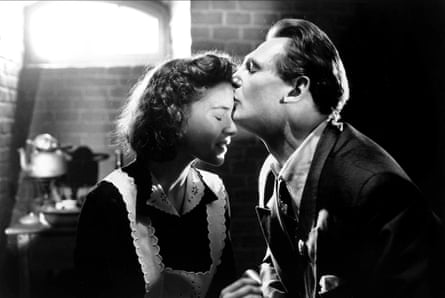
It is one that Donald Trump is still doing his damnedest to spread. A period piece the film may be, but it also serves as a warning to the present. “It’s fascinating when someone holds that position of power,” says Davidtz. “They have to rev people up by convincing them it’s all going to be taken away – by the ‘radical left’ or whoever the bogeyman happens to be.”
Telling parts of her own story via Fuller’s life has been cathartic. But what gave Davidtz the gumption to feel she could get out there and direct having never done so before? “A couple of things. A lot of production had left LA. Back in the day, I could do episodes of Californication or Mad Men, things that were shot at home, but that had begun to dwindle away. As my kids got older, I felt less and less like I had a purpose. And then I got sick.”
In 2013, in between playing the hero’s mother in two Spider-Man movies, Davidtz was diagnosed with stage-3 breast cancer. She had chemotherapy, immunotherapy, lymph-node-removal surgery and a double mastectomy. “It was not a great situation. People were very worried. I ended up being lucky and came through. And there was something I was left with after being so sick: that there is a singular road in front of me and you get your one shot at living a life.”
Becoming a director also coincided with her disillusionment with acting, or at least with what she was being offered. “If a great director or a great part came along, I’d do it now.” She cites as a favourite the glorious 2005 indie comedy-drama Junebug, in which she played a big-city art dealer visiting her in-laws in the US south. “But I don’t want to take any old part with long, boring days saying lines that are so-so. I’ve done that and it made me miserable.”
As long ago as the late 1990s, Davidtz was expressing dissatisfaction with her lot in Hollywood. Moving to the US from South Africa at the start of that decade, she leapt in the space of a year from the wickedly cartoonish Evil Dead sequel Army of Darkness to a small but indelible role as the brutalised housemaid to the SS commandant played by Ralph Fiennes in Steven Spielberg’s Oscar-winning Schindler’s List. Today, she places much of the blame on herself for what followed.
“I was a deer in the headlights,” she sighs. “I said ‘No’ too often. I overthought things. It would have been better to say ‘Yes’ and not take too much time off to prepare for the next thing.” Her first big role after Spielberg’s movie wasn’t until two years later in an adaptation of HE Bates’s Feast of July. “Nobody saw it. I should have done two other films between Schindler’s List and that one. The train moves fast, and if you step off it, even for a minute, it keeps going. And the other actresses on the train, they keep going too. Then you’re left behind.”
It won’t happen again. “Getting sick amplified everything for me. What do I want every day to look like? What do I want to accomplish with my life?” She turned 60 last month. “There was something depressing about it. Fifty was a great one: I’d beaten cancer and I was like, ‘I’m alive! Yeah!’”
Still, not many people can celebrate their 60th birthday with the release of a debut film of such power and originality. “That was the thing. So I told myself to forget the number. My 50s were about getting this one off the ground. I’m going to make the first half of my 60s about piecing the next one together.”
And now she knows she has it in her. “Making Don’t Let’s Go became this do-or-die thing. Like fighting through all the surgeries and treatment and six months of chemo. It was imperative. There was nothing else to do but to do it.” So there’s no confusing Davidtz with the winsome Miss Honey. “I am quite tough,” she smiles. “People think I’m not. But there’s grit in me.”

 2 months ago
41
2 months ago
41






